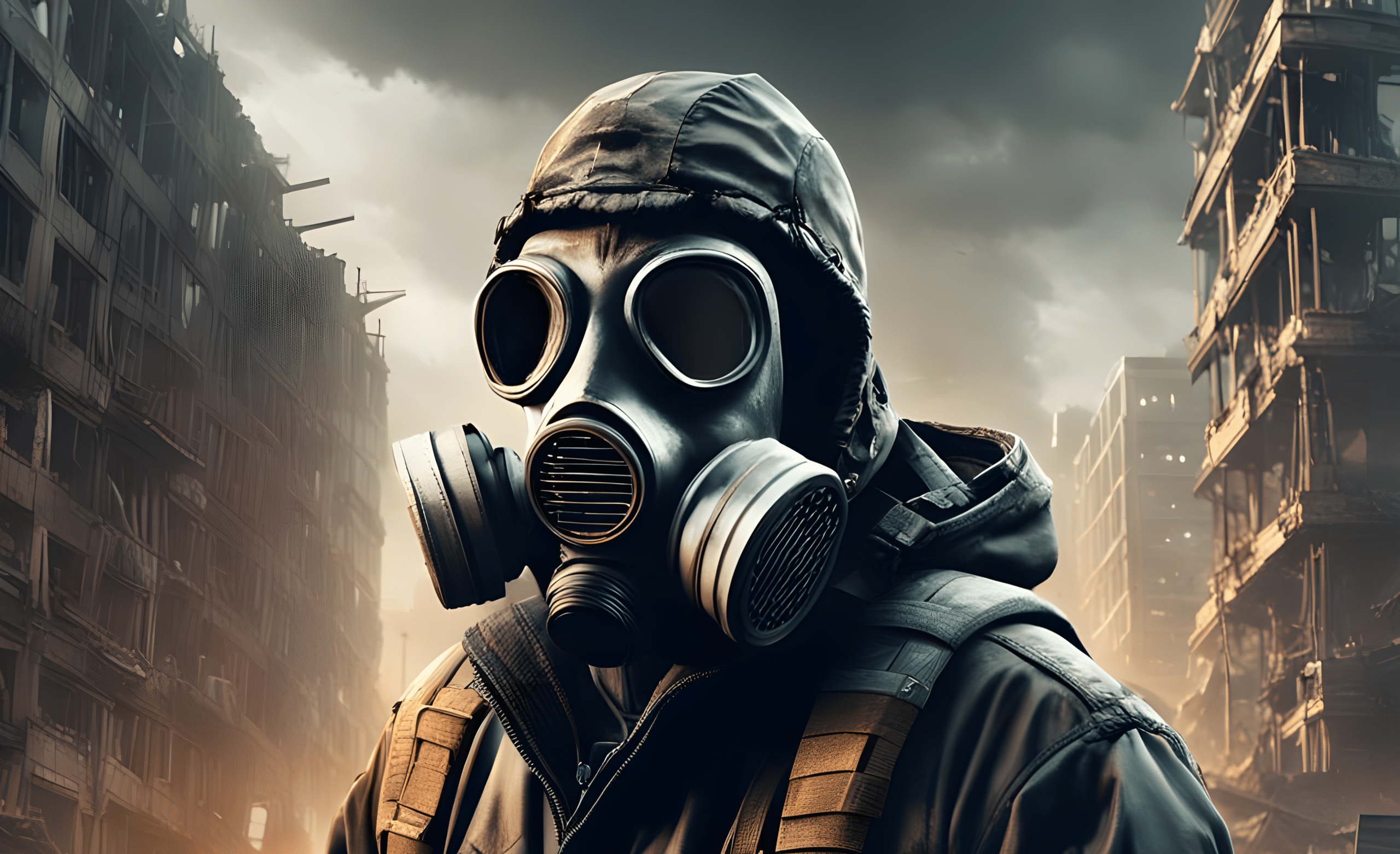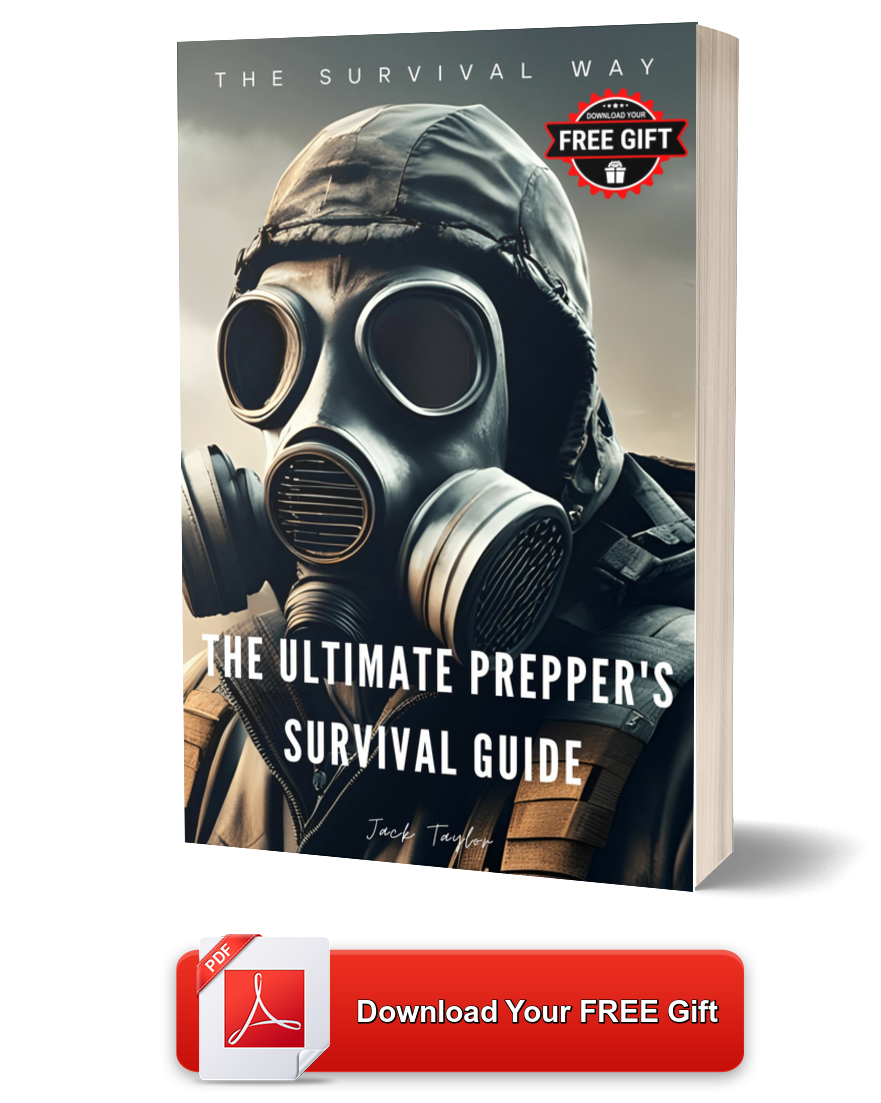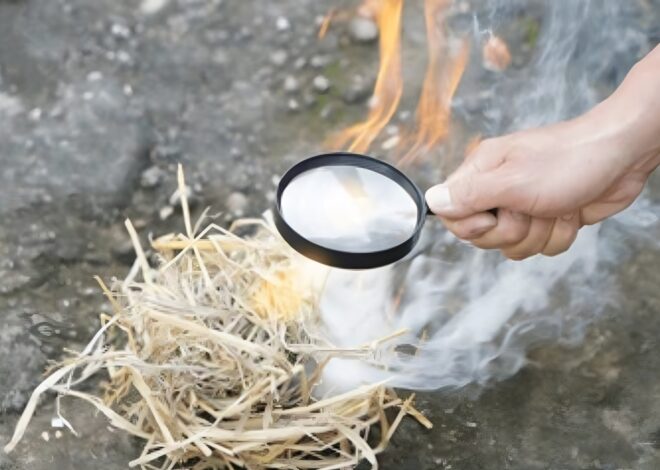
The Ultimate Prepper’s Survival Guide
Welcome to The Ultimate Prepper’s Survival Guide – those who are ready to take on whatever challenges may come their way with preparedness and resilience. In a world where uncertainties lurk around every corner, being equipped with the right knowledge and resources can make all the difference between chaos and calm in times of crisis.
Whether you’re new to prepping or a seasoned survivalist, this comprehensive guide will walk you through everything you need to know to ensure your safety and security in any situation. So grab your bug-out bag and get ready to dive into The Ultimate Prepper’s Survival Guide!
Understanding the Concept of Prepping
Prepping is more than just stockpiling supplies and building bunkers. It’s a mindset, a lifestyle centered around being proactive rather than reactive in the face of uncertainty. Preppers understand the importance of self-reliance and preparedness, knowing that being ready for any scenario can mean the difference between thriving and merely surviving.
It involves assessing potential risks and vulnerabilities, from natural disasters to economic instability, and taking steps to mitigate them before they occur. Prepping is about being resourceful, adaptable, and having the skills necessary to navigate challenging circumstances with confidence.
While some may view preppers as extreme or paranoid, at its core, prepping is simply about being responsible for your own well-being and that of your loved ones. It’s about empowerment through knowledge and readiness, ensuring that you are not caught off guard when disaster strikes. So whether you’re stocking up on canned goods or honing your survival skills in the wilderness, embracing the concept of prepping means taking control of your future in an unpredictable world.
Understanding the Risks
Natural disasters, economic collapse, and pandemics are real threats that can disrupt our daily lives in an instant. From hurricanes and earthquakes to financial crises and infectious diseases, being prepared for these risks is crucial.
When a natural disaster strikes, having the necessary supplies like non-perishable food, water, and emergency gear can make all the difference in ensuring your safety. Moreover, understanding the signs of economic instability and having a plan in place to safeguard your finances is essential.
Pandemics like COVID-19 have shown us how quickly a health crisis can escalate and impact society on a global scale. Stocking up on medical supplies, practicing good hygiene habits, and staying informed about public health guidelines are key components of pandemic preparedness.
By acknowledging these risks and taking proactive steps to prepare for them, you empower yourself to navigate uncertain times with resilience and confidence.
Essential Skills and Supplies for Preppers
Having the right skills and supplies can make all the difference in a survival situation. First and foremost, every prepper should prioritize learning basic first aid techniques. Knowing how to treat wounds, perform CPR, and handle medical emergencies could save lives in a crisis.
Additionally, having knowledge of outdoor survival skills such as building shelter, starting fires without matches, and foraging for food is essential. These skills can help you thrive in the wilderness if necessary.
Stocking up on non-perishable food items like canned goods, dried fruits, and energy bars is crucial for ensuring you have enough sustenance during an emergency. Don’t forget to include plenty of water or invest in a reliable water filtration system.
Furthermore, having tools like multi-purpose knives, flashlights with extra batteries, and a portable stove can greatly enhance your ability to navigate challenges when resources are limited.
Prepping is about being proactive and taking control of your future in an unpredictable world. It involves understanding potential risks and vulnerabilities, and taking steps to mitigate them before they occur. This includes being prepared for natural disasters, economic collapse, and pandemics.
Creating a Survival Plan and Kit
Creating a Survival Plan and Kit is crucial for any prepper looking to be prepared for unexpected emergencies. Start by assessing your specific needs based on your location, family size, and potential risks you may face. Develop a comprehensive plan that includes evacuation routes, communication strategies, and designated meeting points in case of separation.
Your survival kit should contain essentials like non-perishable food, water purification tablets, first aid supplies, multi-tool gadgets, flashlights with extra batteries, and important documents stored in waterproof bags. Customize your kit to fit your unique requirements but remember to keep it portable enough to grab quickly if needed.
Regularly review and update your survival plan and kit as circumstances change or new threats emerge. Practice drills with your family members to ensure everyone knows their roles during an emergency situation.
Food and Water Storage Tips
Stockpiling food and water is a crucial aspect of prepping. When preparing for emergencies, it’s essential to consider the shelf life of your supplies. Rotate through your stock regularly to ensure freshness and avoid waste.
Opt for non-perishable items like canned goods, dried fruits, nuts, and grains that have a long shelf life. Don’t forget to include a manual can opener in your survival kit – it’s easy to overlook this simple but necessary tool.
Water storage is equally important. Store at least one gallon of water per person per day for drinking and sanitation needs. Consider investing in water purification tablets or filters as backup options in case your supply runs out.
Properly seal all containers to prevent contamination and store them in a cool, dark place away from direct sunlight. Be mindful of expiration dates on bottled water and replace them accordingly.
Remember, being prepared with ample food and water supplies can make all the difference during an emergency situation.
First Aid and Medical Supplies
When it comes to prepping for survival, having a solid supply of first aid and medical supplies is crucial. In times of crisis, access to professional medical care may be limited or unavailable, making it essential to be prepared to handle injuries and illnesses on your own.
Stocking up on basic first aid items such as bandages, antiseptic wipes, gauze pads, adhesive tape, and pain relievers can help you address minor injuries effectively. Additionally, including more advanced medical supplies like suture kits, splints, thermometers, and antibiotics can equip you to handle more serious situations.
It’s important not only to have the right supplies but also the knowledge and skills to administer basic medical care. Consider taking a first aid training course or practicing various techniques beforehand so that you’re prepared when emergencies arise.
Remember that maintaining your health and well-being during challenging times requires proactive planning and preparation in advance. By prioritizing your first aid and medical supplies now, you’ll be better equipped to handle unexpected situations with confidence.
Shelter and Emergency Communications
Shelter and emergency communications are crucial aspects to consider. Having a safe place to retreat to during a disaster can make all the difference in your survival. Ensure that your shelter is sturdy and well-stocked with essentials like food, water, and medical supplies.
In addition to physical shelter, having reliable communication methods is key. Invest in alternative forms of communication such as two-way radios or satellite phones, as traditional means may be disrupted during emergencies. Establishing a communication plan with your family or group is essential for staying connected and coordinated during crises.
Practice using your communication devices regularly so you are comfortable with them when an emergency strikes. Familiarize yourself with emergency frequencies and protocols in case you need to reach out for help or information. Being prepared with both shelter and effective communication tools will greatly increase your chances of surviving any unexpected event.
Self-Defense and Protection Strategies
When it comes to prepping, self-defense and protection strategies are essential aspects to consider. Being able to defend yourself and your loved ones in a crisis situation is crucial. One of the most effective ways to prepare for this is by investing time in learning basic self-defense techniques. This could include martial arts training, hand-to-hand combat skills, or even using defensive tools like pepper spray.
In addition to physical defense tactics, mental preparedness plays a significant role in self-protection. Stay alert and aware of your surroundings at all times. Trust your instincts and be ready to act quickly if needed. Developing a strong mindset can make all the difference when faced with a threatening situation.
Furthermore, having the right gear can also enhance your ability to protect yourself during emergencies. Consider items such as flashlights, whistles, personal alarms, or even firearms if you’re trained and licensed to use them responsibly.
Remember that being prepared goes beyond just having supplies; it’s about being mentally and physically ready for any challenges that may come your way. Stay vigilant and proactive in honing your self-defense skills as part of your prepping efforts for ultimate survival readiness.
Building a Self-Sufficient Lifestyle
Building a self-sufficient lifestyle is a key aspect of prepping. It involves developing the skills and resources needed to sustain oneself without relying heavily on outside sources. One way to start is by growing your own food through gardening or raising animals for meat and dairy products.
Learning essential homesteading skills like canning, preserving, and foraging can also contribute to your self-sufficiency. By mastering these techniques, you can ensure a steady supply of food even in times of scarcity.
Additionally, creating alternative energy sources such as solar panels or wind turbines can help you become less dependent on the grid. This not only enhances your self-reliance but also reduces your environmental impact.
Taking steps to reduce waste and recycle materials within your household is another vital aspect of building a self-sufficient lifestyle. Repurposing items and finding creative ways to make the most out of what you have can go a long way in promoting sustainability.
Embracing a self-sufficient mindset empowers individuals to take control of their own well-being and prepare for any unforeseen circumstances that may arise.
The Ultimate Bug Out Vehicle
When it comes to prepping for a survival scenario, having the ultimate bug out vehicle is crucial. Your choice of transportation can make all the difference in ensuring you can navigate various terrains and reach your destination safely.
An ideal bug out vehicle should be reliable, versatile, and capable of carrying essential supplies. Consider vehicles with off-road capabilities like 4×4 trucks or SUVs that can handle rough terrain with ease. Make sure your vehicle has enough cargo space for food, water, first aid kits, tools, and other necessities.
Customizing your bug out vehicle with features like roof racks for extra storage, all-terrain tires for better traction, and even a winch for emergencies can further enhance its functionality. Regular maintenance checks are also crucial to ensure your vehicle is always ready to go at a moment’s notice.
Remember that simplicity is key when choosing a bug out vehicle – prioritize practicality over luxury. Whether it’s an old pickup truck or a rugged Jeep Wrangler, focus on reliability and endurance above all else.
Prepping for Natural Disasters
When it comes to prepping for natural disasters, being proactive is key. Start by researching the common types of disasters in your area and understand how to best prepare for them. Whether it’s hurricanes, wildfires, or earthquakes, each disaster requires specific plans and supplies.
Create a detailed evacuation plan that includes multiple escape routes and designated meeting points. Practice this plan with your family so everyone knows what to do in case of an emergency. Stock up on non-perishable food items, water, first aid supplies, and important documents well in advance.
Invest in sturdy shelter options like tents or portable shelters that can withstand harsh weather conditions. Keep emergency communication devices like radios or satellite phones handy to stay connected when traditional means fail. Don’t forget about securing your home with reinforcements against potential damage caused by disasters.
Stay informed about potential threats through weather alerts and community notifications. Being prepared ahead of time can make all the difference when facing the unpredictable forces of nature.
Preparing for the Next Pandemic
In today’s unpredictable world, being prepared for the unexpected is crucial. Preparing for the next pandemic goes beyond stocking up on supplies; it involves mental readiness and adaptability. Stay informed about potential health threats and have a plan in place to protect yourself and your loved ones.
Building a strong immune system through healthy habits like regular exercise and balanced nutrition can help you withstand illnesses better. Additionally, having essential items such as face masks, hand sanitizers, and non-perishable foods ready can make a significant difference in times of crisis.
Stay connected with reliable sources of information to stay updated on any developing situations. Being proactive in taking preventive measures can greatly reduce the risk of getting sick or spreading infections to others.
Remember that preparation is key when it comes to facing pandemics head-on. By being proactive rather than reactive, you increase your chances of weathering any health crisis that may come your way.
Preparing for the Coming Economic Collapse
As a prepper, preparing for the potential of an economic collapse is crucial. In uncertain times, having a plan in place can make all the difference. Start by securing your finances – diversify investments and have cash on hand. Consider stocking up on essential items that may become scarce during economic turmoil.
Learning self-sufficiency skills like gardening and basic home repairs can help you become more independent. Reduce debt as much as possible to lessen financial strain if the economy falters. Building a community of like-minded individuals can provide support and resources in challenging times.
Remember, being prepared doesn’t mean living in fear; it means taking proactive steps to safeguard yourself and your loved ones. Stay informed about economic trends and be ready to adapt quickly if needed. Being prepared for an economic collapse is not about being paranoid; it’s about being prudent and responsible in today’s unpredictable world.
Mental and Emotional Preparedness
In the world of prepping, mental and emotional preparedness is just as crucial as stocking up on supplies. When facing uncertain situations, staying calm and level-headed can make all the difference. It’s essential to cultivate a positive mindset that can help you navigate through challenging times with resilience.
Practicing mindfulness techniques such as meditation or deep breathing exercises can help reduce stress and anxiety. Additionally, maintaining a sense of hope and optimism can boost your overall mental well-being when preparing for potential emergencies.
Building a support system of like-minded individuals who share your prepping values can provide comfort and encouragement in times of crisis. Regular communication with fellow preppers allows for sharing tips, resources, and emotional support during challenging situations.
Remember to take care of your mental health by engaging in activities that bring you joy and relaxation. Whether it’s spending time outdoors, reading a book, or practicing a hobby, self-care is essential for maintaining emotional stability during uncertain times.
Staying Connected with Other Preppers
Staying connected with other like-minded individuals is crucial. Building a community of preppers can provide support, knowledge sharing, and valuable resources in times of need. Whether it’s joining online forums or attending local meetups, connecting with fellow preppers can offer a sense of solidarity and camaraderie.
Sharing tips on survival strategies, exchanging ideas on skills development, and discussing potential threats can all contribute to enhancing your preparedness level. Networking with other preppers also opens up opportunities for collaboration on group projects such as building shelters or organizing training sessions.
In addition to practical benefits, being part of a prepper network offers emotional support during times of uncertainty. Knowing that you’re not alone in your preparations can alleviate feelings of isolation and fear. It’s reassuring to have a community to turn to for advice or assistance when facing challenging situations.
Cultivating relationships within the prepper community strengthens your resilience and readiness for whatever may come your way. So remember: stay connected with other preppers – together we are stronger!
Myths and Misconceptions about Prepping
When it comes to prepping, there are plenty of myths and misconceptions that can cloud people’s judgment. One common myth is that preppers are extreme doomsday believers who live in bunkers stocked with years’ worth of supplies. In reality, prepping is about being prepared for emergencies and disasters – big or small.
Another misconception is that only conspiracy theorists engage in prepping activities. The truth is, prepping is a practical approach to ensuring your safety and well-being during unexpected events. It’s not about paranoia; it’s about being proactive.
Some may also believe that preppers are anti-social individuals who isolate themselves from society. On the contrary, many preppers emphasize community building and cooperation with others to enhance their chances of survival in tough times.
Some think that prepping requires a significant financial investment. While having some resources set aside for emergencies is important, effective prepping doesn’t have to break the bank. It’s more about mindset and resourcefulness than extravagant spending.
Final Thoughts: Being Prepared for Anything
Being prepared for any situation is not just a hobby for some; it’s a way of life. The ultimate prepper’s survival guide serves as a roadmap to help you navigate through uncertain times with confidence and resilience. By understanding the concept of prepping, recognizing potential risks, acquiring essential skills and supplies, creating a comprehensive survival plan, and fostering self-sufficiency, you can enhance your readiness for whatever may come your way.
Remember that preparation is key, and staying connected with other like-minded individuals can provide valuable support and resources. By dispelling myths and misconceptions about prepping and focusing on mental and emotional preparedness alongside practical strategies such as food storage, first aid knowledge, shelter building techniques, self-defense tactics, emergency communication methods – you are setting yourself up for success in any crisis.
In the end, being a prepper isn’t about living in fear but rather embracing empowerment through readiness. Stay informed, stay proactive, stay vigilant – because when it comes to facing challenges head-on and emerging stronger on the other side – being prepared truly makes all the difference. This is The Survival Way!





Hi!
This is a very comprehensive guide to being prepared for a disaster. I was especially interested in having a good bug out vehicle. I can see how this could be very important. Vehicles are changing though. What will happen if the government mandates or forces us into all electric cars? If the infrastructure is down, how can we charge the cars? If we still have cars with gas, will be able to purchase the fuel to survive? There is so much to think about.
From your article, which do you think might be the most over-looked?
– Scott
Hi Scott,
Thank you for stopping by today and sharing your thoughts about “The Ultimate Prepper’s Survival Guide”. I think you hit the nail right on the head and answered your own question. I personally think the bug out vehicle is the most overlooked. I think because most prepper’s prepare for a bug-in as opposed to a bug-out scenario.
In case you didn’t know, bug-in simply means sheltering in place. Bug-out means evacuating to a safe place. You bring up very good points about government mandated electric vehicles and fuel supplies should the SHTF. The best we can do is prepare the best we can and face whatever comes out way head-on.
After all, that’s “The Survival Way! Best of luck Scott.
P.S. Please make sure to download your FREE copy of “The Ultimate Prepper’s Survival Guide”
Your article, “The Ultimate Prepper’s Survival Guide,” is an impressive and comprehensive resource for anyone serious about preparedness. The way you cover the essential survival topics—ranging from food and water storage to self-defense and long-term sustainability—is clear, well-organized, and practical. Your step-by-step advice helps readers feel equipped and confident in their ability to face unforeseen challenges. It’s a valuable guide that speaks to both beginners and seasoned preppers alike. Excellent work on making such crucial information accessible!
Hello BrightDigiMinds,
Thank you so much for your kind words and thoughtful comment I really appreciate you stopping by today and giving me your input on “The Ultimate Prepper’s Survival Guide”. I really did try to cover everything I could think of and condense as much as the information as possible.
You can go down the rabbit hole with each topic and never finish the guide. Anyways, I just hoped to put as much information as I could to at least help beginners start in the right direction. There is much more advanced information not included in this guide.
However, those advanced survival methods will be shared on our blog posts in the coming weeks and months. Thanks again for stopping by and make sure you download your FREE copy of “The Ultimate Prepper’s Survival Guide”.